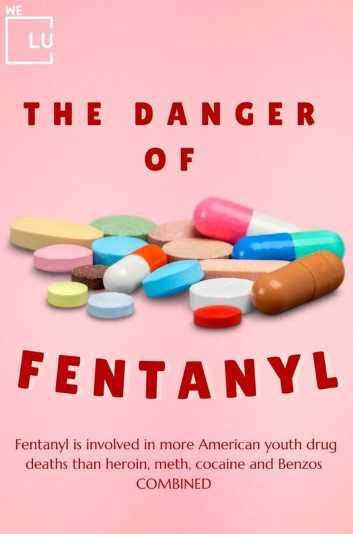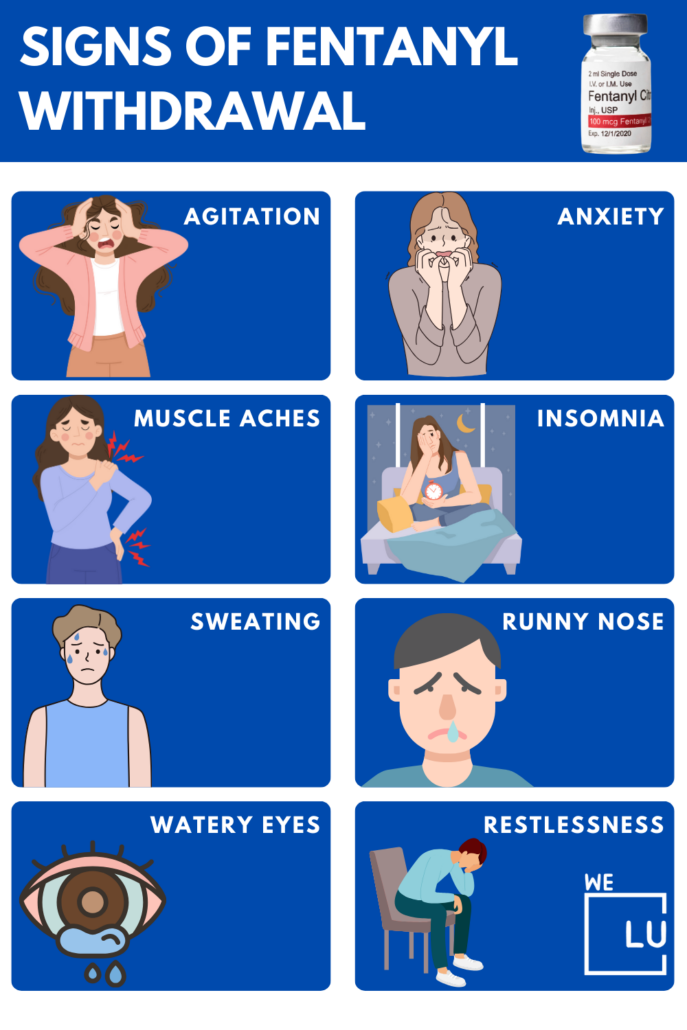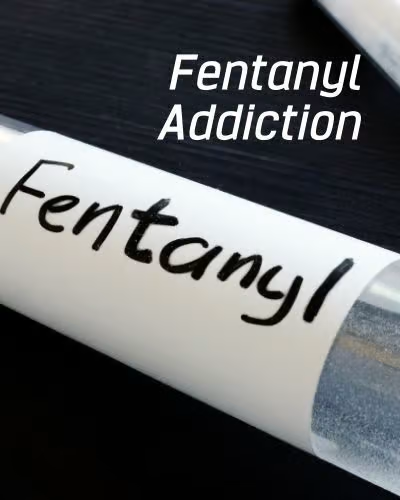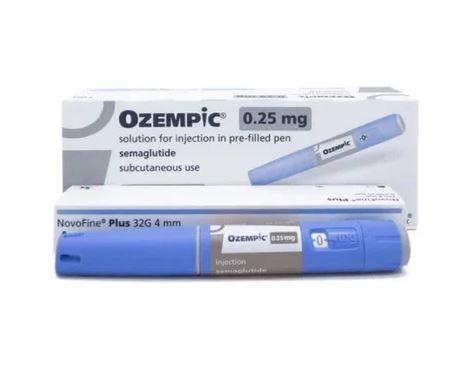Signs Of Fentanyl Overdose
As a potent synthetic opioid, fentanyl is often prescribed to treat severe pain, especially in those who have developed a tolerance to other pain medications. Fentanyl, sadly, also has the potential to be highly addictive and carries a high (and potentially fatal) risk of overdose.
Deaths from fentanyl overdoses have risen dramatically in recent years, highlighting the importance of recognizing the symptoms of a possible overdose and getting medical help immediately if you or someone you know is experiencing them.
The signs and symptoms experienced by fentanyl abusers and addicts can range from mild to severe, depending on the individual’s history of drug use. Some people who use fentanyl may be able to conceal their habit, while others will show clear signs of addiction or overdose.
This article will discuss the symptoms of fentanyl use, abuse, and overdose, as well as how those with an addiction can get the help they need.
Understanding the symptoms of a fentanyl overdose and the significance of getting help can be crucial in preventing a potentially fatal overdose, whether you are a concerned friend or family member or an individual struggling with fentanyl addiction. The signs of fentanyl use, abuse, overdose, and what you can do to help yourself or a loved one deserve a closer look, so let’s do just that.
Fentanyl Overdose Signs
Fentanyl is a highly effective synthetic opioid frequently prescribed to treat severe pain, especially in people with cancer or who have recently undergone surgery.
However, fentanyl is extremely dangerous and can even be fatal if taken in large doses. The alarming rise in fentanyl overdose deaths in recent years underlines the importance of learning to recognize the symptoms of an overdose and getting medical help immediately if one is suspected.
While fentanyl overdose symptoms may be similar to other opioid overdoses, the onset and progression of fentanyl overdose symptoms may be more rapid. Fentanyl overdose symptoms typically include:
- Fentanyl can cause respiratory depression, leading to dangerously low oxygen levels in the blood, wheezing, and even death. This is a common symptom of a fentanyl overdose.
- Lips or nails may turn blue if an individual experiencing symptoms of a fentanyl overdose does not receive enough oxygen.
- Fentanyl can cause constriction of the pupils, resulting in a “pinpoint” appearance.
- Overdosing on fentanyl can cause your skin to feel cold and damp.
- Overdosing on fentanyl can lead to mental fogginess, disorientation, and even coma.
- Fentanyl’s potential to induce nausea and vomiting raises the risk of dehydration and electrolyte imbalance.
Signs Of Fentanyl Abuse
Fentanyl Signs And Symptoms
In addition to the classic symptoms of fentanyl poisoning, there are also indicators of fentanyl addiction and abuse that should raise red flags. Possible symptoms of fentanyl abuse include:
- Addiction to or non-medical use of fentanyl (including snorting or injecting).
- Using fentanyl repeatedly despite its harmful effects.
- It takes a lot of effort and money to get fentanyl and use it.
- Covering up or fabricating fentanyl use.
- Skipping out on obligations or duties in favor of fentanyl use.
- When fentanyl tolerance sets in, higher doses are needed to achieve the same effect.

Skip To:
Learn More:
- How Long Does Fentanyl Stay In Your System, Urine, Blood, Salvia & Hair? Fentanyl Drug Test Duration Chart.
- What Does Fentanyl Do To You? Abuse, Side Effects & Treatment
- What is Tranq? (Xylazine), Tranq Dope, Tranq Wound, Tranq and Fentanyl Dangers.
- What is Fentanyl? Rainbow Fentanyl Symptoms, Uses, Side Effects, Overdose & Detox Withdrawal Timeline
- What Does Fentanyl Look Like? Rainbow Fentanyl, Colored Candy Fentanyl, Skittles Fentanyl Images, Facts, Warnings, & FAQs
- Carfentanil Drug
- Fentanyl Detox
- Fentanyl and Alcohol
- Fentanyl Rehab
- Fentanyl Withdrawal Timeline
Get Help. Get Better. Get Your Life Back.
Searching for Accredited Drug & Alcohol Rehab Centers Near You? Or Mental Health Support?
Even if you have failed previously, relapsed, or are in a difficult crisis, we stand ready to support you. Our trusted behavioral health specialists will not give up on you. Call us when you feel ready or want someone to speak to about therapy alternatives to change your life. Even if we cannot assist you, we will lead you wherever you can get support. There is no obligation. Call our hotline today.
FREE Addiction Hotline – Call 24/7Fentanyl Abuse Statistics
Fentanyl abuse statistics show that fentanyl is a highly potent synthetic opioid that has become a major contributor to the opioid epidemic in the United States. In 2020, there were over 93,000 drug overdose deaths in the US, with fentanyl involved in over 60%. Fentanyl abuse has also increased in other countries, including Canada and the United Kingdom.
73%
Synthetic opioids, including fentanyl, were involved in almost 73% of all opioid-related overdose deaths in 2019.
Source: CDC
1.6 million
Approximately 1.6 million people aged 12 or older misused prescription pain relievers like fentanyl for the first time in 2020.
Source: The National Survey on Drug Use and Health
57%
Fentanyl seizures by law enforcement in the US increased by 57% from 2019 to 2020, with nearly 17,000 pounds of fentanyl seized in 2020.
Source: DEA
Fentanyl Drug Facts
Fentanyl Overview
What does fentanyl do to you? Fentanyl is a synthetic opioid that is many times more potent than heroin and is primarily used for pain management. It can cause pain relief, sedation, and respiratory depression but can also lead to dangerous side effects and overdose. Fentanyl abuse can cause long-term physical and mental health problems, addiction, and dependence. It is a highly dangerous drug that should only be used as a healthcare provider prescribes.
Fentanyl Abuse Signs
- Pinpoint pupils
- Drowsiness or nodding off
- Confusion or disorientation
- Slurred speech
- Shallow breathing or difficulty breathing
- Nausea or vomiting
- Constipation
- Itching or skin rash
- Muscle rigidity or muscle weakness
- Social withdrawal or isolation
- Changes in behavior or mood
- Financial problems or stealing to obtain drugs
- Neglecting responsibilities or personal hygiene
It’s important to note that these signs can vary depending on the individual and the severity of their abuse. If you suspect someone is abusing fentanyl, it’s important to seek professional help.
Fentanyl Addiction Treatment
Fentanyl addiction is a serious condition that requires professional treatment. Here are some common treatments for fentanyl addiction:
- Medication-assisted treatment (MAT): MAT involves using medications, such as methadone or buprenorphine, to manage withdrawal symptoms and cravings. MAT is often combined with behavioral therapy.
- Behavioral therapy: Behavioral therapy involves counseling and other behavioral interventions to address the underlying causes of addiction and help individuals develop coping skills to prevent relapse.
- Inpatient treatment: Inpatient treatment involves staying at a treatment facility for a period of time to receive intensive therapy and support.
- Outpatient treatment: Outpatient treatment allows individuals to receive treatment while living at home and attending work or school.
- Support groups: Support groups, such as Narcotics Anonymous, can provide individuals with a supportive community of people who have also struggled with addiction.
It’s important to note that recovery from fentanyl addiction is lifelong and may require ongoing treatment and support. It’s also important to seek professional help from a healthcare provider or addiction specialist for the most effective treatment.
Most Popular Signs of Fentanyl Overdose FAQs
-
What Are The Signs Of Fentanyl Poisoning?
Pinpoint pupils, profound respiratory depression, cold sweats, rigid muscles, and a slow heart rate are all possible symptoms of fentanyl poisoning. Seizures, cardiac arrest, and death can all result from fentanyl poisoning.
-
What Are The Signs Someone Is On Fentanyl? Signs Someone Is Using Fentanyl
Slurred speech, constricted (small) pupils, difficulty breathing, nausea, vomiting, and constipation are all possible side effects of fentanyl use. Their heart rate may slow, their lips and nails may turn blue, and they may even pass out.
-
What Are The Signs Of Fentanyl In Weed?
Fentanyl is odorless, tasteless, and colorless, making it difficult to detect in weed. Extreme sleepiness, confusion, trouble breathing, and loss of consciousness are all possible side effects.
-
What Are The Signs Of Fentanyl Toxicity?
Severe respiratory depression, pinpoint pupils, cold skin, rigid muscles, and a slow heart rate are possible symptoms of fentanyl toxicity. Seizures, cardiac arrest, and death are all possible outcomes of fentanyl toxicity.
-
What Are The Fentanyl Overdose Signs And Symptoms?
Overdosing on fentanyl can cause extreme drowsiness, respiratory depression, mental confusion, small pupils, and a bluish cast to the skin or lips. Cold and clammy skin, a weak pulse, and a loss of consciousness are also possible symptoms. Fentanyl overdoses are extremely dangerous and need to be treated right away.
-
What Are The Signs Of Fentanyl In Candy?
Extreme drowsiness, confusion, trouble breathing, and loss of consciousness are possible reactions to ingesting fentanyl as candy. Notably, fentanyl is not normally found in candy, and it is extremely risky to ingest illegal drugs in this form.
-
What Are The Signs Of Fentanyl In Cocaine? Signs Of Fentanyl In Coke
Extreme drowsiness, confusion, trouble breathing, and loss of consciousness are all possible side effects of fentanyl in cocaine. Without the user’s knowledge, fentanyl is sometimes mixed in with cocaine, creating a lethal overdose risk.
-
What Are The Signs Of Fentanyl Laced Weed?
Extreme drowsiness, confusion, respiratory distress, and eventually loss of consciousness are all possible side effects of smoking weed laced with fentanyl. Without the user’s knowledge, fentanyl is sometimes added to marijuana, resulting in a potentially fatal overdose.
-
What Are The Signs Of Fentanyl Patch Overdose?
Extreme drowsiness, trouble breathing, confusion, pinpoint pupils, and a bluish tint to the skin or lips may indicate an overdose of fentanyl patches. Cold and clammy skin, a weak pulse, and a loss of consciousness are also possible symptoms. Fentanyl patches are intended to alleviate pain and should be used in accordance with your doctor’s orders.

Signs Of Fentanyl Withdrawal
Fentanyl is a potent synthetic opioid that is commonly used for pain management. However, prolonged use of fentanyl can lead to physical dependence, resulting in withdrawal symptoms when the drug is discontinued.
Fentanyl withdrawal can be difficult to manage and, in some cases, life-threatening. Here are some common signs of fentanyl withdrawal:
Fentanyl Signs Of Use Stopped
Early symptoms of fentanyl withdrawal typically begin within 12-30 hours after the last dose of the drug and can include the following:
- Agitation.
- Anxiety.
- Muscle aches.
- Insomnia.
- Sweating.
- Yawning.
- Runny nose.
- Watery eyes.
- Restlessness.
- Dilated pupils.
- Goosebumps.

Get Your Life Back
Find Hope & Recovery. Get Safe Comfortable Detox, Addiction Rehab & Mental Health Dual Diagnosis High-Quality Care at the We Level Up Treatment Centers Network.
Hotline (877) 378-4154Fentanyl Warning Signs & Fentanyl OD Signs
Fentanyl is a powerful synthetic opioid with devastating effects in the wrong hands. Understanding the symptoms of fentanyl use can aid in the early detection of drug abuse or overdose. Instances of the following are typical of fentanyl abuse:
- Mood swings, depression, and anxiety are possible side effects of fentanyl use. They may also become less involved in outside activities and withdraw from friends and family.
- Fentanyl use can result in a variety of physical side effects.
- Sharp focus.
- Speech difficulties.
- Confusion.
- Dizziness.
- Diarrhea and sickness.
- Itching.
- Constipation.
- Slow or shallow breathing (respiratory depression).
- Nails and lips are the color blue or gray.
- Needles, syringes, burnt spoons, and glass pipes are all examples of drug paraphernalia that may be present in the home of a fentanyl user.
- Heart problems, respiratory issues, and injection-related infections are some medical issues that can arise from prolonged fentanyl use.
- An overdose of fentanyl is potentially fatal and must be treated immediately. Overdose symptoms may include:
- Consciousness lapse.
- Unresponsiveness.
- A slow or shallow breathing rate.
- Weak heartbeat.
- Dry, cold skin.
- Nails and lips are the color blue or gray.
First-class Facilities & Amenities
World-class High-Quality Addiction & Mental Health Rehabilitation Treatment
Rehab Centers TourRenowned Addiction Centers. Serene Private Facilities. Inpatient rehab programs vary.
Addiction Helpline (877) 378-4154Proven recovery success experience, backed by a Team w/ History of:
15+
Years of Unified Experience
100s
5-Star Reviews Across Our Centers
10K
Recovery Success Stories Across Our Network
- Low Patient to Therapist Ratio
- Onsite Medical Detox Center
- Comprehensive Dual-Diagnosis Treatment
- Complimentary Family & Alumni Programs
- Coaching, Recovery & Personal Development Events
Fentanyl Overdose Treatment & What To Do?
Too much fentanyl, or fentanyl mixed with other drugs or alcohol, can cause an overdose. Seek emergency medical attention if you think someone is experiencing a fentanyl overdose. Here are some things to do if you think someone has overdosed on fentanyl:
- Call 911: If you suspect a fentanyl overdose, call 911 immediately. Time is critical, and quick medical attention can save a life.
- Administer Naloxone: Naloxone is an opioid antagonist that can reverse the effects of a fentanyl overdose. If you have access to naloxone, administer it as soon as possible.
- Provide First Aid: While waiting for medical help, provide basic first aid, such as CPR or rescue breathing, if the person is not breathing or has a weak pulse. Do not give the person any food or drink.
- Monitor the Person: Stay with the person and monitor their breathing and pulse until medical help arrives. Be prepared to give additional first aid if the person’s condition worsens.
- Follow Up with Medical Care: Even if the person appears to recover from the overdose, it is important to seek follow-up medical care to address any underlying health issues or addiction problems.

Medical personnel will typically monitor the patient’s vitals, administer naloxone or another medication to reverse the effects of the overdose, and provide other forms of supportive care, such as oxygen therapy or intravenous fluids, when dealing with a fentanyl overdose. Fentanyl overdoses are difficult to treat, so the best way to avoid them is to keep from taking too much of the drug in the first place.
Fentanyl Addiction Treatment
Medication and behavioral therapies are often used together to treat fentanyl addiction. Medications like methadone and buprenorphine can alleviate withdrawal symptoms and suppress cravings. In contrast, individuals can learn skills to manage their addiction and avoid relapse through behavioral therapies like cognitive-behavioral therapy (CBT) and contingency management.
Those in need of help kicking their fentanyl habit should consult with a doctor or addiction specialist to create a treatment strategy that is tailored to their specific requirements.
World-class, Accredited, 5-Star Reviewed, Effective Addiction & Mental Health Programs. Complete Behavioral Health Inpatient Rehab, Detox plus Co-occuring Disorders Therapy.
CALL (877) 378-4154End the Addiction Pain. End the Emotional Rollercoaster. Get Your Life Back. Start Drug, Alcohol & Dual Diagnosis Mental Health Treatment Now. Get Free No-obligation Guidance by Substance Abuse Specialists Who Understand Addiction & Mental Health Recovery & Know How to Help.
Fentanyl Exposure Symptoms
Fentanyl is a potent synthetic opioid used medically for pain management. However, improper use or accidental exposure to fentanyl can have severe consequences. Uncover the diverse symptoms of fentanyl exposure. Symptoms of fentanyl exposure can differ based on the method of ingestion.
Recognize Symptoms of Fentanyl Exposure
Symptoms of fentanyl exposure vary depending on the route of exposure (e.g., inhalation, skin contact, ingestion) and the amount of drug involved. To recognize the signs of fentanyl exposure, look out for these common indicators:
- Pinpoint pupils: A clear sign of opioid overdose.
- Confusion, drowsiness, or loss of consciousness: The person may become increasingly confused or unconscious.
- Slow, shallow, or no breathing: This life-threatening symptom requires immediate medical attention.
- Choking or gurgling sounds: A possible indication of oxygen deprivation.
- Limp body: The person may become unresponsive and weak.
- Cold, clammy skin: A sign of inadequate blood flow.
- Cyanosis: A bluish tint to the skin and lips due to lack of oxygen.
If you witness someone showing these symptoms, call 911 right away. Fentanyl overdose is a medical emergency that can be fatal without prompt treatment. Remember, fentanyl can also be absorbed through the skin. If you suspect exposure, wash the affected area immediately with soap and water. Stay vigilant and take action to protect yourself and others.
Top 10 Symptoms of Fentanyl Exposure
Symptoms of fentanyl exposure can include:
- Respiratory Depression: Fentanyl is a central nervous system depressant, and one of the most dangerous effects of exposure is respiratory depression, which can lead to shallow breathing or even complete cessation of breathing.
- Drowsiness and Sedation: Individuals exposed to fentanyl may experience extreme drowsiness and sedation, leading to impaired consciousness and potential loss of consciousness.
- Constricted Pupils: Fentanyl exposure can cause the pupils of the eyes to become very small (pinpoint pupils).
- Nausea and Vomiting: Some people exposed to fentanyl may experience nausea and vomiting due to the drug’s impact on the digestive system.
- Confusion and Disorientation: Fentanyl can cause cognitive impairment, leading to confusion, disorientation, and difficulty concentrating.
- Slurred Speech: Exposed individuals may exhibit slurred or slowed speech due to the drug’s effects on the central nervous system.
- Weakness and Fatigue: Fentanyl exposure can lead to feelings of weakness, lethargy, and fatigue.
- Hypotension (Low Blood Pressure): Fentanyl can cause a drop in blood pressure, leading to lightheadedness or fainting.
- Skin Irritation or Rash: If fentanyl comes into direct contact with the skin, it may cause irritation or a rash.
- Overdose: In severe exposure or accidental ingestion, individuals may experience life-threatening symptoms, including respiratory arrest, unconsciousness, and even fatal overdose.
If you suspect fentanyl exposure or observe someone exhibiting these symptoms, seek immediate medical attention. Fentanyl is highly potent, and even a tiny amount can be dangerous. Medical professionals will administer appropriate treatments, such as naloxone (Narcan), to counteract the effects of opioid overdose. It is crucial to handle fentanyl with extreme caution and ensure it is only used under the supervision of a licensed healthcare provider.
We Level Up Fentanyl Overdose Dual Diagnosis Treatment
The definition of dual diagnosis (also referred to as co-occurring disorders) can differ between institutions. However, it is generally described as the specific treatment of someone diagnosed with a substance use disorder and a mental health disorder simultaneously. Treating dual-diagnosis clients is a critical aspect of our inpatient treatment experience because co-occurring disorders are strongly correlated with instances of substance abuse.
Creating a treatment plan that addresses the physical aspects of withdrawal, the psychological connection with drug use, and managing underlying mental health disorders is part of setting clients up for success. A thorough mental health analysis identifies possibilities for treatment. Meeting with mental health counselors and medical care providers means access to behavioral therapy and medication treatment. At our dual diagnosis treatment center, We Level Up can implement the highest quality of care.
We recognize the fragile complexities of how mental and substance abuse disorders can influence others and sometimes result in a vicious cycle of addiction. That’s why we offer specialized treatment in dual-diagnosis cases to provide the most excellent chance of true healing and long-lasting recovery.
Accepting that you may be living with a mental illness can be challenging. However, treating the presenting substance abuse case can be magnitudes easier once properly diagnosed and treated. Only a properly trained medical professional can diagnose these underlying conditions. If you believe you are suffering from a disorder alongside addiction, we urge you to seek a qualified treatment center to begin your journey to recovery. Call We Level Up today.
Experience Transformative Recovery at the We Level Up Treatment Center.
See our authentic success stories. Get inspired. Get the help you deserve.



Start a New Life
Begin with a free call to an addiction & behavioral health treatment advisor. Learn more about our dual-diagnosis programs. The We Level Up treatment center network delivers various recovery programs at each treatment facility. Call to learn more.
- Personalized Care
- Caring Accountable Staff
- World-class Amenities
- Licensed & Accredited
- Renowned w/ 5-Star Reviews
We’ll Call You
Signs of Fentanyl Overdose Informative Video
Joey’s Opiates, Drugs, and Alcohol Addiction Recovery Story
Joey’s story is a sad reminder of the harsh reality of addiction. He faced significant challenges in his recovery journey after losing his son, but his progress toward sobriety has been inspiring. The crucial first step for Joey was seeking help for his addiction, and he deserves all the necessary support to aid his recovery process.
Search Signs of Fentanyl Overdose, Symptoms of Fentanyl Exposure & Resources
Sources
- National Institute on Drug Abuse (NIDA) – Fentanyl Drug Facts: https://www.drugabuse.gov/publications/drugfacts/fentanyl Tags: signs of fentanyl overdose
- U.S. Drug Enforcement Administration (DEA) – Fentanyl: https://www.dea.gov/factsheets/fentanyl Tags: signs of fentanyl overdose
- Department of Health and Human Services (HHS) – Opioid Crisis: https://www.hhs.gov/opioids/ Tags: signs of fentanyl overdose
- National Safety Council (NSC) – Fentanyl: https://www.nsc.org/home-safety/safety-topics/drugs/fentanyl Tag: signs of fentanyl overdose





